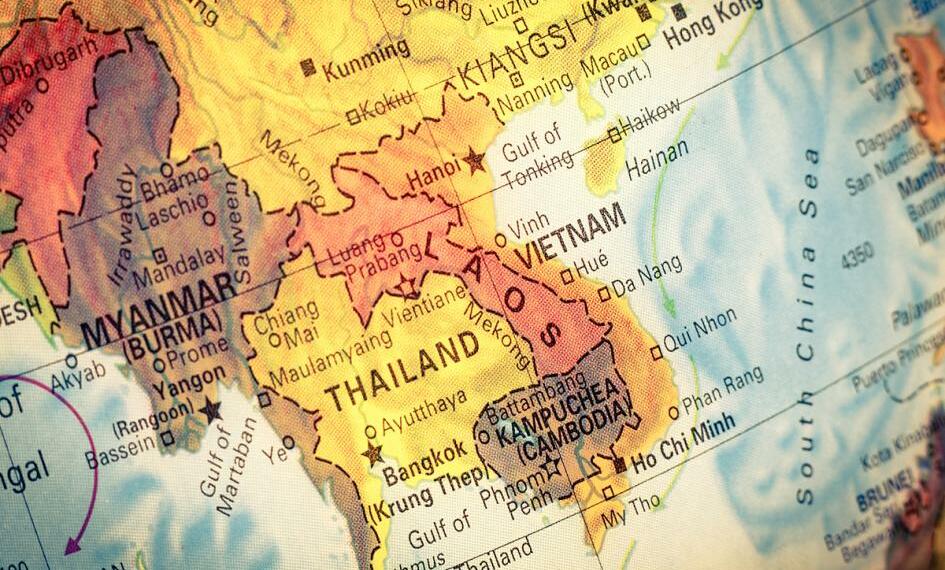Abstract
The CLMV countries (Cambodia, Laos, Myanmar, and Vietnam) are expected to gain a stronger growth momentum in 2023, driven by domestic demand and tourism. China has authorized outbound group tours traveling to Cambodia and Laos, which will benefit Cambodia and Vietnam the most due to the high contribution of tourism to their GDP.
In 2023, the economies of Cambodia, Laos, Myanmar, and Vietnam (CLMV) are expected to experience stronger growth despite the global economic slowdown. SCB EIC anticipates Cambodia’s economy to grow by 5.5%, Laos and Myanmar’s economies to grow by 3.0%, and Vietnam’s economy to grow by 6.2%. Although this growth is expected to be below pre-COVID-19 levels, it will still represent a significant recovery for CLMV countries. Factors such as sound economic fundamentals, supportive fiscal policies, and effective monetary management should help CLMV countries to regain their economic momentum in 2023. In addition, the rise of digital technologies and the shift to more services-based economies could also support their growth. With the right policies and investments, CLMV countries can position themselves to take advantage of the growth opportunities that lie ahead in 2023.
External demand is expected to decline, particularly in Vietnam due to its extensive ties to the global supply chain. CLMV central banks will likely implement a tighter monetary policy in 2023, but policy normalization will be gradual. Laos and Myanmar will face slower growth due to country specific risks and Thailand’s direct investment to CLMV is expected to grow this year, albeit slowly. Improving conditions, such as more upbeat economic momentum, cooling inflation, and the easing of regional travel restrictions, should help ignite a gradual rebound in FDI to CLMV countries.
CLMV countries will gain a stronger growth momentum in 2023, but remain below its growth potential prior to the COVID-19 outbreaks. The rebound would be uneven across countries, depending on economic fundamentals and country-specific risks. SCB EIC expects that Cambodia economy will grow 5.5% this year, 3.0% in Laos and Myanmar, and 6.2% in Vietnam.
Domestic demand and tourism will be key drivers for CLMV economic recovery in 2023. Domestic demand will gain support from improvements in the labor market, as seen in Vietnam’s Q4/22 employment soaring to its highest level since the COVID-19 outbreaks. Meanwhile, the service sector will benefit from rising tourist arrivals this year—particularly Chinese visitors, who made up about 30-35% of total foreign tourists in 2019. China has authorized outbound group tours traveling to Cambodia and Laos starting from February 6, 2023, and is expected to add more destinations to the list soon. In particular, Cambodia and Vietnam are poised to benefit the most from tourism rebound, considering the high contribution of tourism (both domestic and foreign) to GDP at 18.2% and 9.8%, respectively.
In contrast, external demand will decline alongside a subdued global economy. Such gloomy backdrop could affect CLMV exports and foreign direct investment (FDI). Among CLMV countries, Vietnam would take the hardest hit due to its extensive ties to the global supply chain. SCB EIC thus expects only Vietnam to witness a gradual slowdown this year, after a profound growth of 8% in 2022. China’s reopening might somewhat cushion adverse impacts on exports and FDI. Still, there remain risks that weak external demand could depress CLMV domestic demand, manufacturing production, and employment.
CLMV central banks will likely implement a tighter monetary policy in 2023, but policy normalization will be gradual after inflation tends to cool down. Based on our assessment, CLMV inflation will start to wind down in line with falling global commodity prices in 2023, albeit slowly, as prices should remain elevated. Weak currencies—such as the Lao kip (LAK) and the Myanmar kyat (MMK)—will also keep import prices persistently high. Against this backdrop, CLMV central banks will raise the policy rate slightly to curb inflation and stabilize national currencies. SCB EIC anticipates a slower rate hike in H2/23 because 1) The US Federal Reserve has signaled a slower rate increase, which would alleviate downward pressure on CLMV currencies, 2) Overall economic recovery remained fragile, and 3) In some countries—such as Vietnam, local firms began to face hardship in refinancing debt and thus falling into a liquidity crunch. This could fuel economic risks if the tight financial condition continues.
The economic recovery in Laos and Myanmar are expected to be slower than other countries due to country specific risks. Laos’ economic stability is fragile from price stability, to fiscal and external balances—which would keep future growth below its potential. Laos also faces high inflation, partly from rapid LAK depreciation and deteriorating fiscal positions, which depressed domestic economic activities Laos’ external public debt burden is expected to average USD 1.2-1.5 billion annually in the next four years, while the foreign reserve buffer remained low at around USD 1.1 billion as of September 2022. Meanwhile in Myanmar, ongoing political uncertainty would weigh down economic growth in the medium term. Investors will continue to have lower sentiment, and domestic economic activities in Myanmar should remain subdued. Despite the incoming general election in 2023, SCB EIC views that it will not significantly ease political uncertainties. Hence, these drawbacks will likely keep Myanmar’s growth below its potential for the time being.
Thailand’s direct investment to CLMV is expected to grow this year, albeit slowly, from a subdued reading in 2022. Negative factors in recent years include a fragile and teetering economic rebound, soaring inflation that heightened business costs, and country-specific risks such as Myanmar’s political unrest that hampered investor sentiment. Furthermore, as foreign investment usually takes time for preparation, the COVID-19 outbreaks thus aggravated many FDI project postponement. These setbacks would still exist in 2023, yet improving conditions—from more upbeat economic momentum, cooling inflation, and the easing of regional travel restrictions—should help ignite a gradual rebound in FDI to CLMV countries. In the medium term, SCB EIC views that the CLMV region would remain an…



